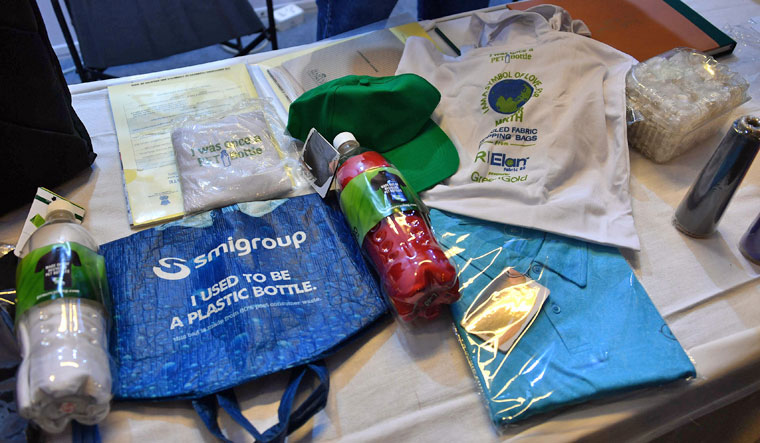The rag picking urchins and the women from self help groups have so far been the beneficiaries of the waste recycling business in India, earning almost half the money that constitutes the value of the waste. Resource, is what people in the waste to wealth sector would like to call what goes out of the trash cans in homes, industrial units, organisaitons and public spaces.
But soon all that may change and the space, and all the wealth therein, may well be taken by the entrepreneurial class.
According to Sujeet Samaddar, Senior Consultant (Industry) in government think tank NITI Aayog, 3 million direct jobs, 12 to 15 million indirect jobs and Rs 700 million worth of materials could be unlocked in India by recycling waste. It may sound like music to the ears of Prime Minister Narendra Modi who will soon have to spell out what his government has done to create jobs.
The government think tank believes that there is plenty of opportunity for entrepreneurs as recycling had become a viable and sustainable business.
The NITI Aayog, in fact, will be coming out with its paper and policies on recycling waste in the second half of February. If we are to read between the lines of what Sammaddar said, the government may well declare recycling a part of industry within the infrastructure space.
While the whole recycling efforts on a large scale appears to be aimed at saving the earth, policy makers are also looking at it as a way to create jobs and unlock the value of waste. Studies in the field have discussed not only the solid waste management ecosystem, policy and regulatory framework, but also the business models and opportunities that will present themselves in the short term.
The expectation is that technology, including blockchain and artificial intelligence, will drive the recycling business, which may not need manual segregation. In fact, the government believes that the technology to handle mixed waste is already available in the form of plants that can convert any kind of waste—including construction and demolition debris—to wealth. If such plants are found less efficient, there are facilities to conduct research and improve them to suit India's unique needs.
Not only was there lots of headspace in the recycling business, enabling policies were also there in place, if the government is to be believed. And the buzz word is circular-economy, no landfills.
Waste paper basket is a misnomer to be taught to kids, it is resource basket. And landfills of today could be tourist spots and recreational areas, and even golf courses .
The participants at the national conference on “Managing Urban Waste: Solid waste, Plastic waste, Electronic waste", organised by ASSOCHAM, were gungho as their contention that waste by itself was a resource found resonance in government. There was also expectation that what will follow are tax holidays and tax breaks, concessional rates of interest, capital depreciation etc.
Even as the speakers on the dais were oozing confidence and thought of a clean India, free of litter, was no more than two or three years away, those in the business did not seem to share the same spirit. As one of them put it, “We are moving there...but the journey is a very long one”.



